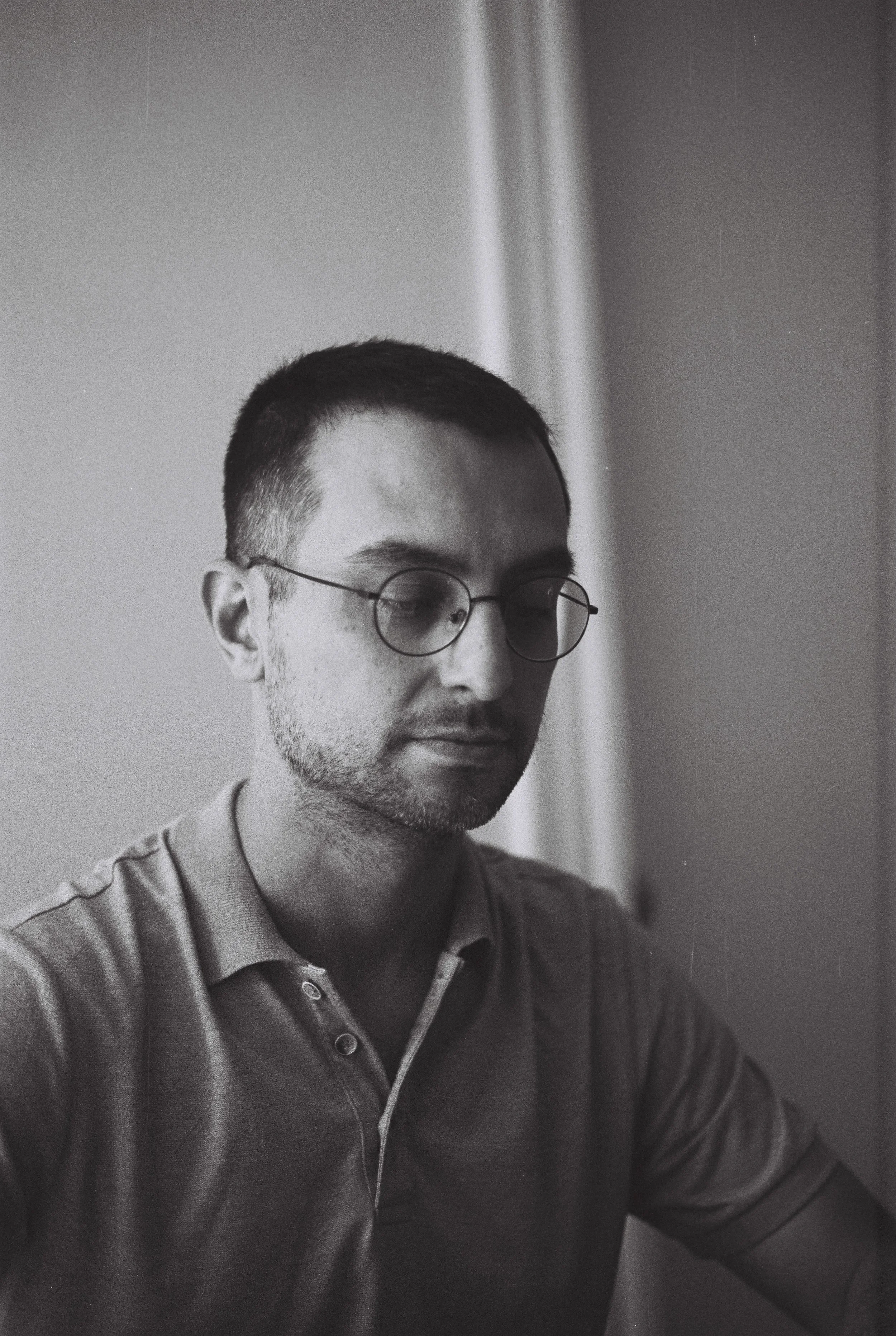Participation | Emre Gercek
“A great democratic revolution is taking place among us,” declared nineteenth-century French thinker Alexis de Tocqueville in his famous work Democracy in America (1835). Such statements almost always have political or ideological undertones, but Tocqueville was adamant that his book did not aim to serve or oppose any party. He claimed that he was stating a fact he clearly observed during his travels in the United States. This “great fact of the modern world” was “the irresistible movement of democracy.” “Having destroyed feudalism and vanquished kings,” democracy established the dominion of equality as a principle and passion. Tocqueville asked his readers: “Would it be wise to believe that a social movement that comes from so far could be suspended by the efforts of a generation?”
Today, almost 200 years later, the answer is not as straightforward as Tocqueville’s rhetorical question implied. There are many reasons to doubt the victorious march of democracy: political apathy, polarization, the rise in political threats and demonizing discourse, the erosion of democratic norms and procedures, and the rise of authoritarian-populist leaders. There is also the documented fact that wealthy people and business groups overwhelmingly determine public policy. Ten years ago, political science professors Martin Gilens of Princeton University and Benjamin Page of Northwestern University demonstrated that “the American public have little influence over the policies that our government adopts,” with a warning that “America’s claim to being a democratic society is seriously threatened.”
It is therefore possible to make a case that democracy is no longer in progress but in retreat—or that the “democratic revolution” has been defeated by its oligarchic and authoritarian adversaries. The situation today, indeed, is troubling for democracy. Yet, I would like to suggest that this idea and image of democracy as an irresistible movement should still be taken seriously—not primarily because I would like to defend Tocqueville or be sanguine, but because I would like to highlight one important lesson: democracy’s progressive movement relies on the citizenry’s energetic and egalitarian participation in collective power.
Remarkably, Tocqueville arrived at the argument that there is an “irresistible movement of democracy” by personally experiencing a move between places and ideas. Tocqueville and his friend Gustave de Beaumont landed in Newport, Rhode Island, in May 1831. Two minor diplomats, their official task was to write a report on the penitentiary system in the United States. They traveled extensively in ten months. They first went upward from New York to Canada via Buffalo. After some time in Ontario and Quebec, they came back to the U.S. They spent a month in Boston, where they met influential people such as future Harvard College president Jared Sparks, opposition leader and future National Republican Party presidential candidate Henry Clay, and former president John Quincy Adams. After another long stay in Philadelphia, they turned westward toward the Mississippi River.
Their journey proved adventurous—they survived a shipwreck on the Ohio River on their way to Cincinnati and had to go to Louisville on foot in a gruesome winter because of the frozen river! From Memphis, they went down the Mississippi River to New Orleans. On their way back to France, they stopped in Washington, D.C., and even had a meeting with President Andrew Jackson.
Beaumont and Tocqueville fulfilled their official duty with success. Their report on the American penitentiary system received the highest prize from the French Academy. Yet what made them truly famous were their self-appointed unofficial tasks. Beaumont published a novel called Marie: Slavery in the United States (1835)—a half-fictional, half-factual depiction of racial inequality and domination in the United States.
In the same year, Tocqueville published Democracy in America to critical acclaim. Famous nineteenth-century English thinker John Stuart Mill wrote to Tocqueville, “You have changed the face of philosophy.” Similar opinions are still being voiced. In his biography of Tocqueville, historian Hugh Brogan commented that Democracy in America “is the greatest book ever written on the United States.”
One may or may not agree with such accolades, but hardly anyone can deny that Democracy in America is a striking work. For one, it gave a significant boost to the prestige of democracy. Many influential thinkers in the history of Western political thought, including several founding fathers of the United States, characterized democracy in negative terms. For example, Madison shared Plato’s criticism that democracy is a licentious and disorderly rule of the multitude. However, by Tocqueville’s visit, the majority of the states in the United States had accepted universal male suffrage. American democracy proved that popular governments can be orderly and free.
This image of a revolutionary and orderly democracy posed a serious challenge to the legitimacy of European anti-democratic regimes. In England, there still was a landed aristocracy with legal and political privileges. In France, while the landed aristocracy was legally abolished, high property qualifications for (male) suffrage still excluded the vast majority of the population. The “irresistible movement of democracy,” therefore, implied that aristocratic privileges or exclusive class distinctions in Europe were illegitimate and soon to be over.
Relatedly, Tocqueville argued that the movement of democracy was toward equality. Since modern democracy emerged as a revolution against the permanent class hierarchies of feudal societies, it aspired to establish legal-political equality and social equality. Tocqueville called this democratic form of equality the “equality of conditions.” By this, he did not mean a society in which everyone has equal amounts of property. Instead, he meant a society with class mobility, a large middle class, and widespread education—a society where nobody is deprived of democratic power due to unfavorable socio-economic and intellectual conditions. In fact, Tocqueville repeatedly declared that equality was the most dominant principle and passion of democracy, even confidently predicting that the movement of democracy would not “retreat before the bourgeois and the rich.”
This is where the story of American democracy gets sour. It is true that land ownership in the United States was significantly widespread, particularly compared to European countries. Tocqueville emphasized the role of inheritance laws that distributed land equally among children. But, of course, this high level of economic equality was limited to the white population.
For example, Georgia distributed land to white settlers through a lottery, but this land was expropriated from the Cherokee Nation. Tocqueville was aware of this fact and even commented that the American government was weaponizing law to take land away from Native Americans. Yet he did not really explore the depths of how the movement of “equality of conditions” in Jacksonian America entailed the forced removal of Native Americans.
There was also one glaring exception to the “equality of conditions”: the institution of slavery in the South. Tocqueville’s experience as a traveler directly shaped his discussion of this issue. When he was on the boat traveling westward on the Ohio River, Tocqueville felt like he was in between two worlds. On the left bank was Kentucky, a slave state clinging to the aristocratic castes of the Old World, applied to the relations of race. On the right bank was Ohio, a free state where free labor created a new world of industrial prosperity. Tocqueville predicted that just as democracy vanquished feudal aristocracy, it would also vanquish racial aristocracy in the South. The institution of slavery would not be able to withstand the idea of equality, as well as the economic productivity of free labor. This image of two contrasting worlds was captivating. However, arguably, it also prevented Tocqueville from paying deeper attention to the intersections between the equality of conditions and racial aristocracy—for example, how racial exclusion and inequality were entrenched even in Northern states with legal equality.
I think there is one place where Tocqueville’s image of democracy as an irresistible movement becomes most interesting and instructive: his discussion of what he called “democratic despotism.” A combination of democracy and despotism may seem like a confusion or oxymoron. Yet this was precisely Tocqueville’s warning: democracy can create its own form of despotism.
Tocqueville insisted in the opening pages of Democracy in America that his book was not a panegyric. In the concluding sentences of the book, he reminds his readers why: “The nations of today cannot make conditions among them not be equal; but it depends on them whether equality leads them to servitude or liberty…” In other words, the “irresistible movement of democracy” can lead to two destinations: “equality in liberty” or “equality in servitude.”
What would this “equality in servitude” or “democratic despotism” look like? Tocqueville clarifies that this despotism would not resemble the “tyranny of Caesars,” in which the sovereign wields arbitrary and often violent power over society. Democratic despotism, on the contrary, would be “peaceful” and “moderate.” It would be like a tutelary power that relieves citizens from political responsibility and action. It would not force any political doctrines or actions on citizens, but it would sap citizens of the political will and action. It would not have an overtly anti-egalitarian origin or character; citizens may even willingly elect such despotic power, desiring to withdraw from political affairs in favor of their personal and economic interests. In Tocqueville’s own words, it would be like “industrious animals” choosing their “shepherd.”
Tocqueville’s metaphor of “industrious animals” was not arbitrary. He observed that individuals in democratic times tend to prioritize their economic interests. This is again because democracy was a revolution against feudal aristocracy and its exclusive class structure. In principle, the “equality of conditions” means that all citizens are entitled to the right to have property, and—again in principle—anyone can move up or down the social ladder. For Tocqueville, the sinister outcome of the “equality of conditions” was that citizens may prioritize economic success to such an extent that they lose sight of their collective interests.
Overall, in Tocqueville’s eyes, the most dangerous direction that “democracy’s irresistible movement” could take was this: a society without public spirit and action. Democracy can create an energetic economy, but a similar energy would not exist in public and political life. Remarkably, Tocqueville posited such a society as the opposite of “equality in liberty.” For Tocqueville, liberty did not primarily mean the freedom to pursue individual interests without coercion. It meant the freedom to participate in political and collective affairs. If citizens do not exercise this freedom, political life would be left to despotic forces.
Tocqueville discovered the antidote to this despotic threat during his stay in Boston and New England: local politics and voluntary associations. Future Harvard president Sparks counseled him to pay attention to town politics, since towns were historically the first organized communities before the states and the federal government. This suggestion gave Tocqueville the idea that local politics can be practical schools for cultivating public spiritedness and political participation. Because local problems and affairs affect citizens more directly, Tocqueville commented, it is easier for citizens to see how their own interests are connected to community interests.
The same insight applies to civil and political associations. Associations teach citizens the importance and power of combining. In fact, Tocqueville argued that democratic citizens can defend themselves against the encroachment of despotic power through political associations. Both local politics and associations meant one overall thing: it is through political participation (in various levels—elections, local politics, and associations) that democratic citizens can understand their collective interests and direct democracy away from despotism.
We can now more clearly understand the Tocquevillian lesson I suggested above: democracy’s “movement” toward “equality in liberty” requires the citizenry’s energetic participation in their collective and political affairs. Tocqueville shows us that the biggest threat to democracy may not be its external adversaries but itself. Consider, for example, the enormous power of money in democratic politics. While Tocqueville did not pay real attention to the oligarchic appropriation of democratic procedures, his emphasis on participation and collective action still proves crucial. In fact, one can even argue that oligarchy co-opted Tocqueville’s lesson of associational action through lobbies and super PACs. Electoral reform to curb the power of money is certainly a necessary step, but equally important is building collective bodies and social movements to counterbalance that power and to articulate and communicate the common interests of the citizenry.
Moreover, Tocqueville’s emphasis on local politics can be an invitation to explore the possibilities of bolstering citizen engagement in local governing bodies (e.g., education boards, housing and zoning commissions) and of building more participatory democratic institutions or networks at the local level (e.g., participatory budgeting, solidaristic economy).
“So where are we going?” wrote Tocqueville after declaring that democracy’s movement was a “providential fact.” Tocqueville wanted to impress upon his readers that they were part of this movement, and it was ultimately in their hands to determine whether this movement was going toward servitude or liberty. What if we think that the movement of democracy is still ongoing today? At the very least, the thought suggests that democracy should inspire an extraordinary energy—an energy that emerges every time citizens concert their power to contest inequality and take charge of their common concerns.
Emre Gercek is an assistant professor of political science at University of Connecticut. His research and teaching interests are in the history of political thought with a focus on democracy. In his free time, he likes to watch and play soccer.
Written by Emre Gercek | Photography by Chessin Gertler



